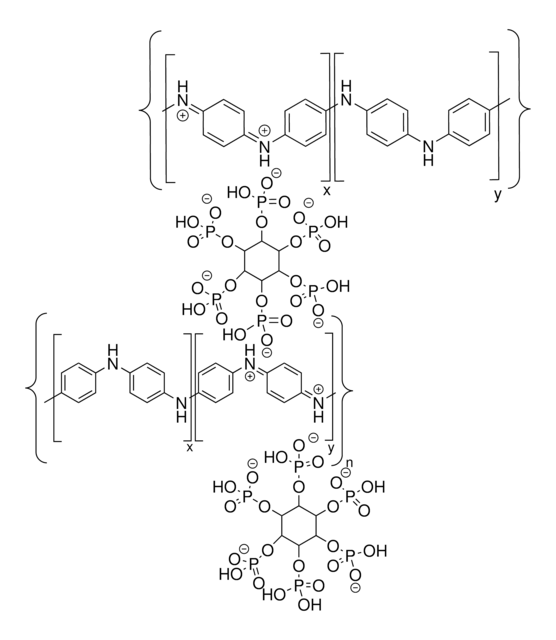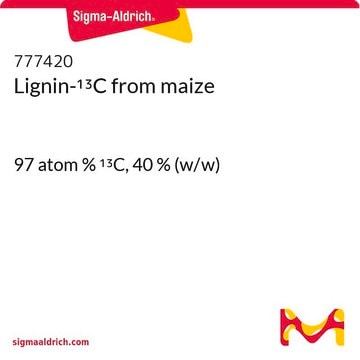561126
Polyaniline (emeraldine salt) short chain, grafted to lignin
powder
About This Item
Recommended Products
form
powder
contains
ligno-sulfonic acid as dopant
particle size
2-3 μm
pH
1.95 (5 wt. % in H2O)
conductivity
1-2 S/cm (pressed pellet)
SMILES string
Nc1ccc(N)cc1
Looking for similar products? Visit Product Comparison Guide
Related Categories
General description
Application
Features and Benefits
Chem/Phys Resistance
Other Notes
signalword
Danger
hcodes
Hazard Classifications
Eye Dam. 1 - Skin Irrit. 2 - STOT SE 3
target_organs
Respiratory system
Storage Class
11 - Combustible Solids
wgk_germany
WGK 3
flash_point_f
Not applicable
flash_point_c
Not applicable
ppe
dust mask type N95 (US), Eyeshields, Gloves
Certificates of Analysis (COA)
Search for Certificates of Analysis (COA) by entering the products Lot/Batch Number. Lot and Batch Numbers can be found on a product’s label following the words ‘Lot’ or ‘Batch’.
Already Own This Product?
Find documentation for the products that you have recently purchased in the Document Library.
Customers Also Viewed
Articles
Sigma-Aldrich tutorial on lithography nanopatterning explains patterning layers for conductors, semiconductors, and dielectrics on surfaces.
The application of conducting polymers at the interface with biology is an exciting new trend in organic electronics research.
Self-healing soft electronic materials offer potential cost savings and reduced electronic waste.
While dye sensitization as the basis for color photography has been accepted for a very long time,1 attempts to use this principle for the conversion of solar light to electricity generally had resulted only in very low photocurrents, below 100 nA/cm
Our team of scientists has experience in all areas of research including Life Science, Material Science, Chemical Synthesis, Chromatography, Analytical and many others.
Contact Technical Service







